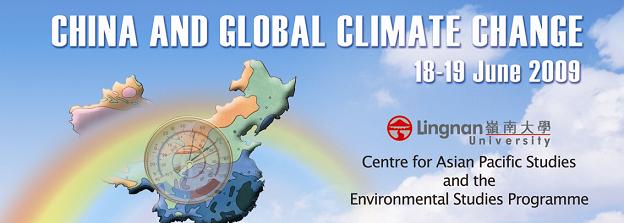
Event Title
Conference on China and Global Climate Change : Reconciling International Fairness and Protection of the Atmospheric Commons
Location
AM310, Lingnan University
Start Date
19-6-2009 9:00 AM
End Date
19-6-2009 10:30 AM
Language
English
Description
An international agreement on deep emission reductions is unlikely to materialize in the near future. What can be done if we wish to further an ambitious long-term climate policy goal? This article proposes a liability system that starts with at least one frontrunner and allows itself to be taken to court for the damages related to its emissions. Such a system will be fully upscalable to larger liability pools, and allows the rule of law to prevent dangerous climate change to a reasonable degree. Furthermore, I suggest strict proportionality as a distributional rule to provide powerful incentives to mitigate emissions. In order to limit the challenge of time inconsistency, we need one actor to serve as the frontrunner. The EU can credibly serve this function if it chooses to do so; alternate frontrunners are welcome to join or build their own liability fund(s). Since all four components (ambitious benchmark, liability system, distributional rule, and prevention of time inconsistency) reinforce each other, it appears to be prudent to believe that we can make substantial headway towards achieving a low greenhouse gas future by the end of the century without having to rewrite politics as we know it.
Document Type
Presentation
Recommended Citation
Sprinz, D. (2009). Liability for climate change: A decentralized approach to long-term climate policy. In China and global climate change: Proceedings of the conference held at Lingnan University, Hong Kong, 18-19 June 2009 (pp. 309-322). Centre for Asian Pacific Studies and the Environmental Studies Programme, Lingnan University, Hong Kong.
Included in
Liability for climate change : a decentralized approach to long-term climate policy
AM310, Lingnan University
An international agreement on deep emission reductions is unlikely to materialize in the near future. What can be done if we wish to further an ambitious long-term climate policy goal? This article proposes a liability system that starts with at least one frontrunner and allows itself to be taken to court for the damages related to its emissions. Such a system will be fully upscalable to larger liability pools, and allows the rule of law to prevent dangerous climate change to a reasonable degree. Furthermore, I suggest strict proportionality as a distributional rule to provide powerful incentives to mitigate emissions. In order to limit the challenge of time inconsistency, we need one actor to serve as the frontrunner. The EU can credibly serve this function if it chooses to do so; alternate frontrunners are welcome to join or build their own liability fund(s). Since all four components (ambitious benchmark, liability system, distributional rule, and prevention of time inconsistency) reinforce each other, it appears to be prudent to believe that we can make substantial headway towards achieving a low greenhouse gas future by the end of the century without having to rewrite politics as we know it.

